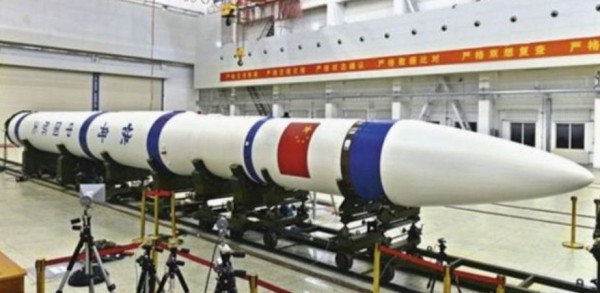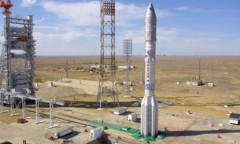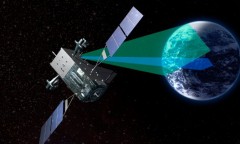By Arthur Dominic J. Villasanta , | April 03, 2017

Kuaizhou launch vehicle.
China has overambitious plans of taking down SpaceX in the low-cost space launch market based on a combination of massive state investments and subsidies to private Chinese firms competing against SpaceX.
Beijing intends to triple its investments in space science over the coming years, and support a growing number of start-ups planning to enter the space launch market. The full-throated effort to dominate the space launch market, including the low cost market owned by SpaceX, stands in marked contrast to China's current aim of using its military-run space industry to boost national prestige.
Like Us on Facebook
China budget for its military-run space program is unknown, but is estimated by some quarters at $3 billion annually over the past few years. That amount pales in comparison to the over $19 billion that went to NASA in 2016.
China, however, seems to have put that money to good use. China conducted 22 launch missions in 2016 and 19 in 2015.
China's space program under the control of and funded by the People's Liberation Army (PLA) plans to launch 30 space missions in 2017. If achieved, this year will be the busiest in the history of China's space program since its start in 1960.
Hand-in-hand with its PLA-run space program is China's financial support for start-ups in the space launch market and other segments of the space industry.
It's estimated China has 43 start-ups worth at least $1 billion involved in the space industry. While none of these firms can be compared to either SpaceX or Blue Origin, they have an ace-in-the-hole both American firms don't: an assurance of massive state subsidies.
Western analysts have noted an increasing number Chinese space launch start-ups over the past few years. One of these upstarts, Landspace (established in 2015) claims it will conduct its first commercial launch this year.
Another upstart, ExPace (founded in 2016) plans to market its solid-fueled Kuaizhou rocket to customers looking to orbit small satellites.
Western analysts note, however, that both firms are only making these claims because of Beijing's backing. ExPace's Kuaizhou launch vehicle is a modified version of the missile China uses to launch its anti-satellite (ASAT) weapons. Landspace's launch vehicle is based on China's Long March 11 rocket.
-
Use of Coronavirus Pandemic Drones Raises Privacy Concerns: Drones Spread Fear, Local Officials Say

-
Coronavirus Hampers The Delivery Of Lockheed Martin F-35 Stealth Fighters For 2020

-
Instagram Speeds Up Plans to Add Account Memorialization Feature Due to COVID-19 Deaths

-
NASA: Perseverance Plans to Bring 'Mars Rock' to Earth in 2031

-
600 Dead And 3,000 In The Hospital as Iranians Believed Drinking High-Concentrations of Alcohol Can Cure The Coronavirus

-
600 Dead And 3,000 In The Hospital as Iranians Believed Drinking High-Concentrations of Alcohol Can Cure The Coronavirus

-
COVID-19: Doctors, Nurses Use Virtual Reality to Learn New Skills in Treating Coronavirus Patients










